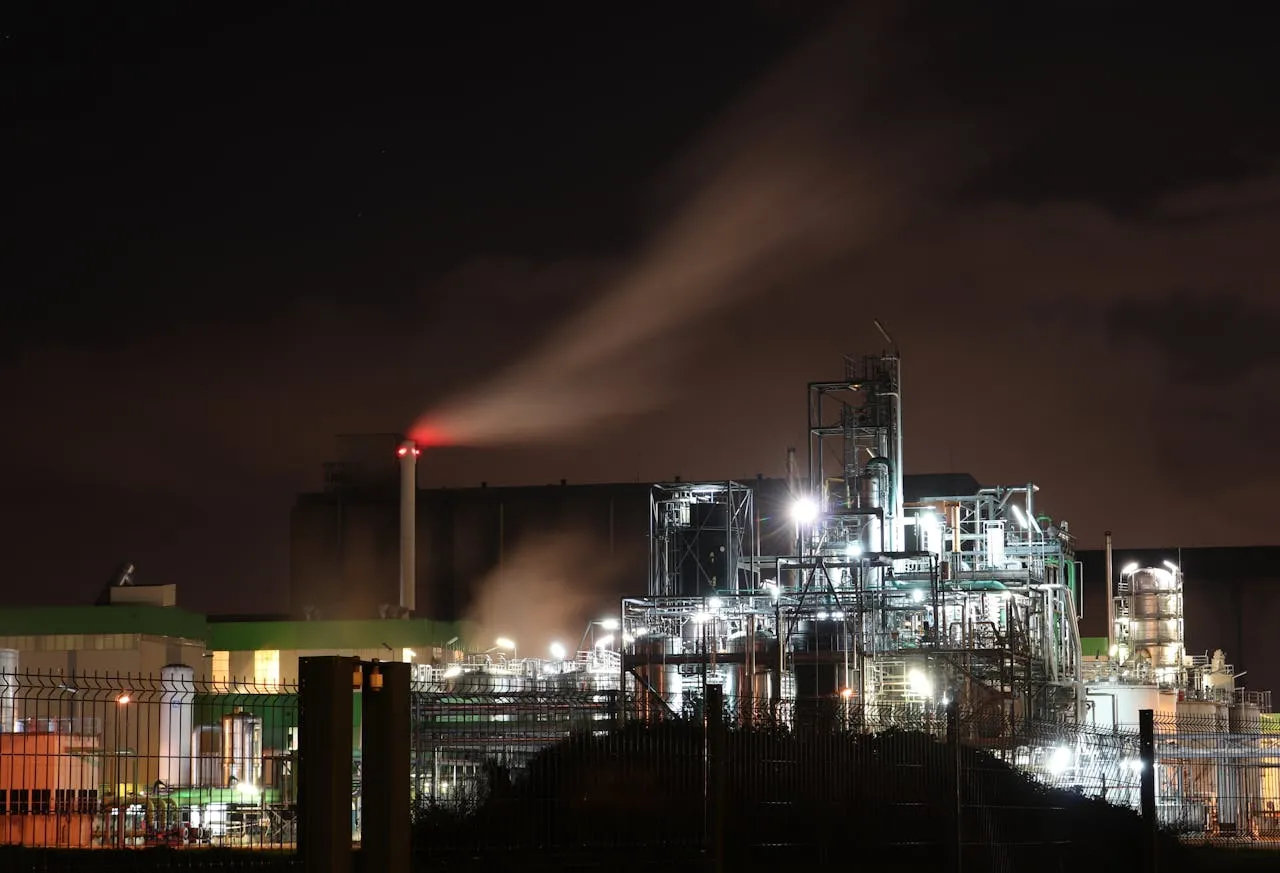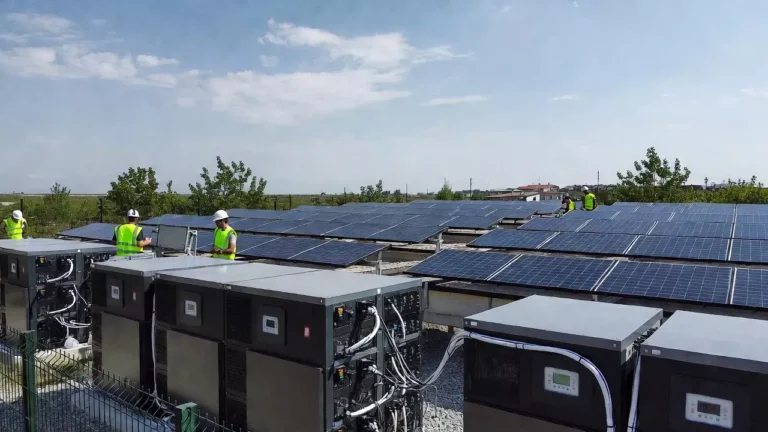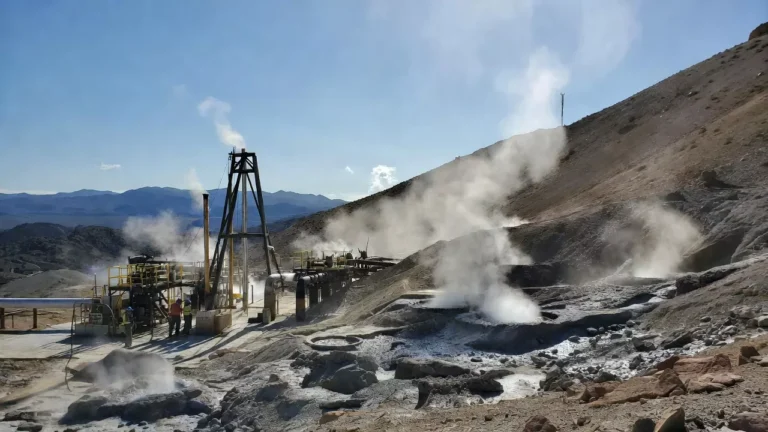
Ameresco and Republic Services Commission New RNG Facility at Lee County Landfill in Illinois
Ameresco, Inc. (NYSE: AMRC), a leading provider of clean energy solutions, in collaboration with Republic Services (NYSE: RSG), a major player in the environmental services industry, has officially commenced operations at their latest renewable natural gas (RNG) facility located at the Lee County Landfill in Dixon, Illinois. This project marks the 15th renewable energy facility that the two companies have successfully developed together and represents another significant step forward in the broader adoption of sustainable waste-to-energy technologies.
The new facility, which reached commercial operation status at the end of June 2025, is part of a growing network of RNG plants aimed at reducing greenhouse gas emissions and supporting the clean energy transition. Built to capture and process landfill gas, the Lee County facility converts methane—a potent greenhouse gas—into pipeline-quality RNG. The clean gas is then injected into a regional natural gas transmission pipeline, helping replace fossil fuel consumption with low-carbon alternatives.
This facility is designed to process approximately 4,500 standard cubic feet per minute (scfm) of raw landfill gas. Without such processing, this gas would typically be flared—burned off to prevent its release into the atmosphere—contributing to environmental pollution. By transforming this gas into usable RNG, the project avoids that pollution while creating a valuable clean energy resource.
Emissions Reduction and Sustainability Impact
The environmental benefits of the Lee County RNG facility are substantial. The facility is projected to reduce more than 61,000 metric tons of carbon dioxide-equivalent (CO₂e) emissions per year. To put that into perspective, this reduction is equivalent to:
- The emissions from burning over 70 million gallons of gasoline, or
- The consumption of approximately 1.5 million barrels of crude oil.
Such figures underscore the facility’s role in combatting climate change and advancing decarbonization goals. Methane, the primary component of landfill gas, is up to 80 times more potent than CO₂ over a 20-year timeframe. Capturing and utilizing it as RNG therefore has an outsized impact in reducing the total greenhouse gas footprint of landfills.
Alignment with State and Corporate Climate Goals
This RNG project directly supports Illinois’ clean energy objectives. The state has committed to achieving 40% renewable energy by 2030 and transitioning to 100% clean energy by 2050. By capturing landfill emissions and turning them into usable energy, the Lee County facility plays a critical role in helping Illinois meet those ambitious targets.
At the corporate level, Republic Services is pursuing a bold sustainability strategy as part of its long-term environmental vision. One of its core goals is to beneficially reuse at least 50% of landfill biogas across all of its sites by 2030. With each new RNG facility brought online, the company inches closer to this milestone.
“This facility exemplifies our commitment to investing in sustainability innovation that provides impactful decarbonization solutions to the communities we serve,” said Tim Oudman, Republic Services’ Senior Vice President of Sustainability Innovations. “Our long-standing partnership with Ameresco continues to result in projects that are helping to create a more sustainable world.”
Ameresco echoed this sentiment, highlighting the broader significance of RNG projects within the energy transition and local economic development.
“Turning organic waste into renewable energy is one of the most impactful ways we can contribute to a more sustainable future and advance the circular economy,” said Michael Bakas, President of Renewable Fuels at Ameresco. “This is something we’ve done many times in collaboration with Republic Services. Projects like this reduce emissions, support energy demand growth and resiliency, and bring meaningful investment to local communities. We’re thrilled to bring another successful project of this kind to life in the great state of Illinois.”
A Growing Network of RNG Projects
The Lee County project is one among many RNG initiatives underway between Republic Services and Ameresco. With 15 facilities now operational, the partnership has become a model for scalable and replicable waste-to-energy development across the U.S. Several more projects are already in the pipeline, with varying stages of permitting, construction, and design.
Each facility is carefully tailored to local waste generation volumes and energy needs, ensuring a high level of efficiency and integration with regional energy infrastructure. By capturing biogas from municipal solid waste, these projects serve multiple functions:
- Emission mitigation
- Local economic stimulation through job creation and infrastructure development
- Supply of clean transportation fuel for fleets, including refuse trucks and municipal buses
- Long-term environmental stewardship
Republic and Ameresco’s RNG plants not only provide climate benefits, but also support the circular economy—a system in which waste is seen as a resource to be reused, repurposed, and reintegrated into productive use.
Local and National Implications
The Lee County RNG facility also brings immediate benefits to the local community. RNG projects typically create skilled jobs during construction and operations while generating revenue through clean fuel credits such as Renewable Identification Numbers (RINs) under the federal Renewable Fuel Standard (RFS). RNG produced from landfill gas is often used as a transportation fuel, particularly in compressed natural gas (CNG) vehicles, helping decarbonize the logistics and freight sectors.
With a growing emphasis on clean energy and climate policy at both the state and federal levels, projects like this are likely to attract increasing levels of investment and policy support in the coming years. They also serve as templates for municipalities and private companies seeking to achieve emissions reductions while managing solid waste more sustainably.










